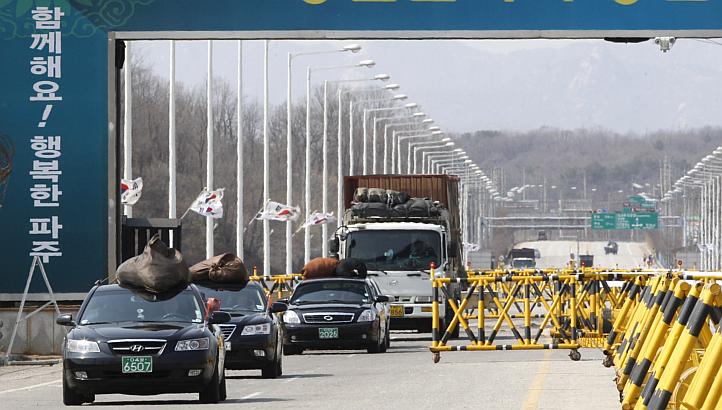
North Korea has not responded to South Korea’s calls for formal talks on resuming operations at the joint Kaesong Industrial Complex, officials in Seoul say.
On Thursday, Seoul gave the North 24 hours to agree to talks on the Kaesong Industrial Complex, warning of “grave measures” if its offer was ignored.
South Korea’s President Park Geun-hye has called a security meeting to discuss next steps, Yonhap news agency reported.
North-South tensions are high following Pyongyang’s nuclear test in February.
Pyongyang blocked South Korean access to the site and pulled out its 53,000 workers earlier this month.

“We are keeping close tabs on all developments, but the North has not expressed its position so far,” South Korean Ministry of Unification spokesman Kim Hyung-suk said, shortly before the noon deadline.
“All that remains is for the North to make its decision to resolve the issue,” he added.
A report on South Korea’s Yonhap news agency, citing presidential palace spokesman Yoon Chang-jung, said President Park Geun-hye had scheduled a meeting with foreign affairs and security ministers at 15:00 local time on the matter.
The remaining 175 South Koreans still in the complex are believed to be running out of food and medicines, because the North has refused to allow fresh supplies from the South into the industrial park, which is located inside North Korea.
The South Korean government has refused to spell out what measures it may take, but there is speculation that it may be considering pulling out its remaining citizens from the complex.
However, that would leave South Korean assets open to seizure by the North Korean authorities, as happened before at a moth-balled tourism site run by the two countries.
UN Secretary-General Ban Ki-moon was aware of the South’s call for talks, and “sincerely [hoped] the operation of the complex [could] return to normal as soon as possible through dialogue,” a UN spokesman said on Thursday.
Kaesong Industrial Complex, which was launched in 2003 as a sign of North-South co-operation, was the biggest contributor to inter-Korean trade and provided the North with much-needed hard currency.
[youtube fi7o0__7L_8]